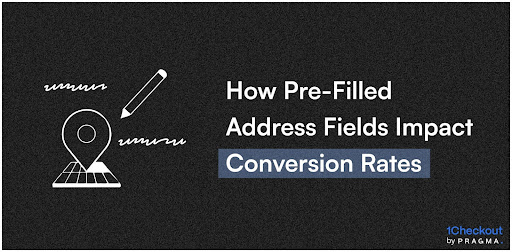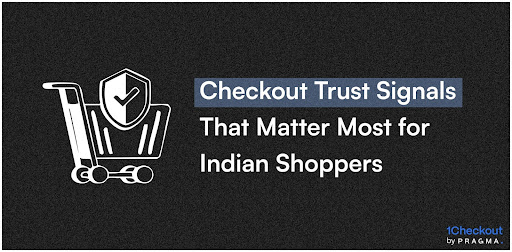Payment Gateways and Ecommerce Businesses

What is a Payment Gateway?
A payment gateway is a software service that enables electronic payment processing for merchants or businesses. It acts as a bridge between a merchant's website or mobile application and the financial institution that processes the payment.
Payment Gateways vs Payment Processors:
This clarification is essential before we move further into the topic!
A Payment Processor is responsible for the financial settlement of a transaction. When a customer makes a purchase, the Payment Processor authorises the transaction and ensures that the funds are transferred from the customer's account to the merchant's account.
While a Payment Gateway facilitates the transfer of payment information between the merchant's website and the payment processor. It encrypts the customer's sensitive payment information (such as credit card details) and sends it to the payment processor for authorization. Once the transaction is approved, the payment gateway receives the response and communicates it back to the merchant's website, allowing the transaction to be completed.
But, we often see both Payment Gateways & Payment Processors are provided by the same company, and that’s the reason behind why the terms are sometimes used interchangeably.
How Payment Gateways work:

- Customer initiates payment: The customer enters their payment information, and submits the payment through the payment gateway.
↓ - Payment gateway encrypts data: The payment gateway encrypts the payment data using secure protocols to protect it from interception and unauthorised access.
↓ - Payment gateway forwards payment data: The payment gateway forwards the encrypted payment data to the payment processor for authorisation.
↓ - Payment processor verifies payment: The payment processor sends the payment information to the customer's bank or card issuer to verify that the payment can be authorised.
↓ - Payment processor sends response: The payment processor sends a response back through the payment gateway to the merchant's website/app, indicating whether the payment was approved or declined.
↓ - Settlement and transfer of funds: If the payment is approved, the payment processor settles the transaction by transferring the funds from the customer's account to the merchant's account, after deducting the payment gateway fees.
Note: Checkout our unique benefit of up to 50% cashback on Payment Gateway Charges with Pragma’s 1Checkout
Basic types of Payment Gateways Solutions:
- Hosted Payment Gateways: These gateways redirect customers to a third-party website to complete their transactions.
Examples: PayPal, Amazon Pay, and Stripe Checkout. - Self-Hosted Payment Gateways: These gateways are integrated directly into a website or mobile app, and the merchant maintains control of the checkout process.
Examples: Authorize.net, Braintree, and Cybersource. - Bank-Integrated Payment Gateways: These gateways are integrated with the merchant's bank, allowing them to accept payments directly from the customer's bank account.
Examples: eCheck and Trustly. - Mobile Payment Gateways: These gateways enable customers to pay via mobile devices.
Examples: Apple Pay, Google Pay, and Samsung Pay. - API Payment Gateways: These gateways are used by developers to build custom payment solutions.
Examples: Dwolla, WePay, and Payline. - Virtual Terminal Payment Gateways: These gateways allow merchants to accept payments via phone or email.
Examples: BluePay and Square Virtual Terminal. - Direct Payment Gateways: These gateways accept credit or debit card payments without redirecting the customer to another website.
Examples: PayPal Payments Pro and Authorize.net Advanced Integration Method.
The Best Payment Gateway providers in India

- Paytm Payments Bank: One of the largest payment gateways in India, offering a range of services including mobile payments, bill payments, and money transfers.
- Razorpay: An Indian payment gateway that offers a range of features including recurring payments and subscriptions, as well as support for multiple languages and currencies.
- Instamojo: A popular Indian payment gateway that offers a range of features including mobile payments, recurring payments, and invoicing.
- CCAvenue: One of the largest and oldest payment gateways in India, offering support for multiple payment methods and a range of features for businesses.
- PayU: An Indian payment gateway that offers a range of features including mobile payments, recurring payments, and fraud protection.
- Cashfree: An Indian payment gateway that offers support for multiple payment methods, including digital wallets, UPI, and net banking.
- MobiKwik: An Indian payment gateway that offers a range of services including mobile payments, bill payments, and money transfers.
(Others Payment Gateways include - EBS, TechProcess, BillDesk, ICICI Merchant Services, HDFC Bank Merchant Services, Axis Bank Payment Gateway, Yes Bank Payment Gateway, Paykun, JusPay, Citrus Pay, MSwipe, PayZapp, Pine Labs, TPS, Atom Payment Gateway, Paytm Money, ZestMoney, and BharatPe)
In terms of differences, Paytm has a larger customer base in India and a strong brand recognition, while Cashfree is a newer player in the market but offers competitive pricing. PayU is geared towards larger businesses, while Razorpay and Instamojo are popular choices for small businesses.
Key factors to consider while comparing Payment Gateways:
- Payment Types: Check the payment types supported by the gateway, including credit cards, debit cards, digital wallets, and bank trnsfers. Make sure the gateway supports the payment methods you want to offer to your customers.
- Fees: Compare the transaction fees, setup fees, monthly fees, and any other charges associated with each payment gateway provider. Make sure you understand all of the costs involved before making a decision.
Note: Checkout our unique benefit of up to 50% cashback on Payment Gateway Charges with Pragma’s 1Checkout - Security: Make sure the payment gateway provider you choose complies with the Payment Card Industry Data Security Standard (PCI DSS) and implements industry-standard encryption and fraud protection measures.
- Integration: Consider how easily the payment gateway can be integrated with your existing e-commerce platform or website. Some gateways offer APIs or plugins that make integration quick and easy.
- Support: Consider the level of customer support offered by each payment gateway provider, including phone, email, and live chat support, as well as the availability of documentation and resources.
- User Experience: Evaluate the user experience of the payment gateway, including the checkout process, order management, and reporting features. Make sure the payment gateway provider you choose offers a smooth and user-friendly experience for your customers.
- Scalability: Make sure the payment gateway you choose can scale to meet your business needs as you grow, whether that's handling increasing numbers of transactions, supporting multiple currencies, or offering additional features and integrations.
But ultimately, the best payment gateway for your business will depend on your specific needs, such as:
- Volume of transactions
- The types of payments you need to accept and
- The integrations you require.
Now let us elaborate on the 2 most important factors, one to the merchant - Gateway Charges, and the other to their customers - Security.
- Payment Gateway Security
Payment gateway security is essential to protect against fraud and maintain the trust of customers. Here are some common security measures used by payment gateways to protect sensitive payment information:
- Encryption: Payment gateways use encryption to protect payment information from interception and unauthorised access. Encryption algorithms ensure that data is scrambled and unreadable without the appropriate decryption keys.
- Tokenization: Some payment gateways use tokenization, a process that replaces sensitive payment information with a unique identifier or token. This reduces the risk of data exposure and limits the amount of sensitive information stored on the merchant's system.
- Two-factor authentication: Two-factor authentication adds an extra layer of security by requiring the customer to provide a second form of identification, such as a one-time password, in addition to their payment information.
- Fraud detection and prevention: Payment gateways use a range of techniques to detect and prevent fraudulent transactions, such as machine learning algorithms that analyse patterns of fraudulent activity and manual review processes that identify suspicious transactions.
- Compliance with industry standards: Payment gateways must comply with industry standards such as the Payment Card Industry Data Security Standard (PCI DSS), which sets requirements for security practices and procedures to protect payment card information.
In addition to these security measures, payment gateways also typically have a team of security experts that monitor for potential security threats and implement security updates as needed to maintain a secure payment environment.
- Payment Gateway Charges (or) Payment Gateway Costs
The cost of a payment gateway can vary depending on several factors such as the payment gateway provider, the type of plan you choose, the volume of transactions you process, and the specific features you need.
Some payment gateway providers offer basic plans with no monthly fee and charge a per-transaction fee, while others have monthly subscription plans that include a certain number of transactions.
On average, you can expect to pay anywhere from 1.5% to 3% + a fixed fee per transaction.
Payment gateway charges typically include a combination of transaction fees, setup fees, and monthly or annual fees. Here are the most common types of payment gateway charges:
- Transaction fees: These are fees charged for each transaction processed through the payment gateway. Transaction fees can be a percentage of the transaction amount, a flat fee per transaction, or a combination of both.
Note: Checkout our unique benefit of up to 50% cashback on Payment Gateway Charges with Pragma’s 1Checkout - Setup fees: Some payment gateways charge a one-time setup fee to cover the costs of integrating the gateway with the merchant's website or mobile app.
- Monthly or annual fees: Some payment gateways charge a monthly or annual fee for access to their services. These fees may include additional features and support services, such as fraud detection and prevention, chargeback management, and reporting tools.
- Cross-border fees: If a merchant accepts payments from customers in different countries, the payment gateway may charge additional fees for processing cross-border transactions.
- Interchange fees: these are the fees that are set by Visa and MasterCard. They are a non-negotiable cost for all businesses.
- Processor markup: these are the fees that payment processors charge on top of interchange to run their business.
In India, some of the cheapest payment gateways of 2023 include:
- Razorpay: A popular choice for small businesses, with a rate of 2% + INR 3 per transaction for domestic transactions, and 3% + INR 3 per transaction for international transactions.
- Paytm: A widely used payment gateway in India, with a standard rate of 2% + INR 3 per transaction.
- Instamojo: An affordable option for small businesses, with a rate of 2% + INR 3 per transaction.
- Cashfree: A newer player in the Indian market, with a rate of 1.75% + INR 3 per transaction.
- PayU: A popular choice for larger businesses, with a rate of 2% + INR 3 per transaction.
- CCAvenue: Offers a basic plan with a per-transaction fee starting at 2.5% + INR 3.
Note: Checkout our unique benefit of up to 50% cashback on Payment Gateway Charges with Pragma’s 1Checkout
Methods to limit Payment Processing Costs (PPC)

- Shop around for the best processing rates: Compare processing rates and fees from different payment processors to find the best deal for your business.
- Negotiate with your processor: If you have been processing payments with a company for a while, you may be able to negotiate better rates or lower fees by leveraging your business volume.
- Use a flat-rate pricing model: Consider switching to a flat-rate pricing model, which can save you money if your business has a large number of transactions with low ticket values.
- Avoid unnecessary fees: Make sure you understand all the fees that your processor is charging and eliminate any that are not necessary for your business.
- Use integrated payment processing: If you have a website or an e-commerce platform, consider integrating your payment processing with your website or platform to reduce the costs of processing payments.
- Batch transactions: Batching transactions, or processing multiple payments at once, can lower your processing costs by reducing the number of transactions you need to process.
- Utilise digital wallets: Encouraging customers to use digital wallets, such as Apple Pay or Google Pay, can reduce your processing costs, as these transactions often carry lower processing fees than traditional card payments.
- Implement fraud protection measures: Implement fraud protection measures, such as 3D Secure or address verification, to reduce the risk of fraud and lower processing costs.
To Wrap it Up
Payment Gateways require extensive research.
Analyse and decide on the right Payment Gateway features that benefit your brand, because in the long run; Payment Gateways play a huge role in providing a seamless purchase experience and in turn increase customer satisfaction & loyalty.
P.S. Checkout our unique benefit of up to 50% cashback on Payment Gateway Charges with Pragma’s 1Checkout






